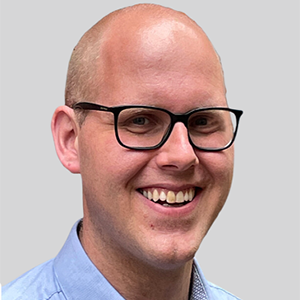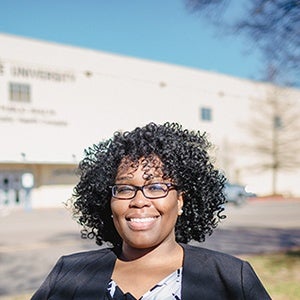Welcome to the Department of Epidemiology
We study the frequency, distribution, and determinants of disease in humans, a fundamental science of public health. In addition to pursuing groundbreaking global research initiatives, we educate and prepare future medical leaders and practitioners as part of our mission to ignite positive changes in the quality of health across the world.
Innovative Educational Programs: Onsite and Online
We are committed to enriching the academic experience for our talented students, empowering them with the critical thinking and problem-solving skills they need to address current and future public health challenges. We offer more than seventy courses covering a broad range of topics including cancer, infectious disease, reproductive and cardiovascular epidemiology. Degree programs include Master of Public Health (now available online), Master of Science (one- and two-year degrees), and the Ph.D. in Population Health Sciences. Students specialize in one of twelve areas of interest and can choose from a wide variety of course offerings.
Located in Thriving Medical Science Community
The Harvard T.H. Chan School of Public Health is in the center of the Longwood Medical Area, a Boston healthcare hub that is home to the Harvard Medical School, Brigham and Women’s Hospital, Beth Israel Deaconess Medical Center, and many other venerable institutions dedicated to improving public health worldwide. This energetic environment offers engaged students a wealth of invaluable resources as they launch their professional careers.
Renowned Faculty and Dynamic Student Body
Our impressive faculty, led by Department Chair Professor Albert Hofman, is comprised of more than seventy-five members, including thirty-five core professors working onsite in our Boston location. Recognized for their expertise in a wide array of disciplines, our team remains at the forefront of epidemiology, actively engaged in research and regularly publishing their findings in the most respected health journals. Our researchers strive to enhance the validity and efficiency of epidemiological investigation methodologies, and expand the practical applications for these tools. The primary goals of our collaborative, multidisciplinary research are to effectively control and ultimately prevent human disease.
Department of Epidemiology Mission
Research
Well-grounded multidisciplinary research toward assessing the distribution and determinants of human illness with the aim of establishing reasoned preventive measures.
Methodology
Continuous efforts to improve methods for epidemiological investigation, to enhance validity and efficiency, and to expand the scope of activities in which epidemiologic methods can be usefully applied.
Education
Preparation of future researchers and practitioners in the field of epidemiology, as well as dissemination of knowledge to health professionals and the general public. As the reach of the Harvard T.H. Chan School of Public Health is global in scope, so too is our research program. We are committed to the enhancement of quality of health not only in our own country, but internationally.
The Department of Epidemiology has a long tradition of teaching and research in the epidemiology of cancer, cardiovascular disease, and other chronic diseases, as well as in epidemiologic methodology. The department is innovative, collaborative and continuously celebrates a commitment to ignite positive changes in the world of public health.
Feature Articles
50 Years Ago: Q&A with Alumnus Peter Greenwald
October 2, 2023—Peter Greenwald ’73, MD, DrPH, distinguished former director of the National Cancer Institute’s Division of Cancer Prevention and Control, answers questions about his time as a graduate student and offers advice to current students.
New Faculty Q&A: Jeffrey Eaton
April 1, 2023 - We are excited to welcome Jeffrey Eaton as Associate Professor of Epidemiology. Learn more about Eaton in the following Q&A.
New Faculty Q&A: Kjetil Bjornevik
January 1, 2023 – We are delighted to welcome Kjetil Bjornevik as Assistant Professor of Epidemiology and Nutrition at the start of this new year. Learn more about Bjornevik in the following Q&A.
New Faculty Q&A: Yuan Ma
January 1, 2023 – We are thrilled to welcome Yuan Ma as Assistant Professor of Epidemiology. Ma was previously a postdoctoral research fellow in our department.
New Faculty Q&A: Barbra Dickerman
June 1, 2022 – We are thrilled to welcome Barbra Dickerman as Assistant Professor of Global Cancer Prevention in the Department of Epidemiology affiliated with the Zhu Family Center for Global Cancer Prevention.
Postdoc Spotlight: Mary Wesley
July 7, 2021—Mary Wesley is a teaching fellow in the Department of Epidemiology and a graduate of the Harvard T.H. Chan School of Public Health. Learn how she supports the Delta Scholars Program in this Q&A.










